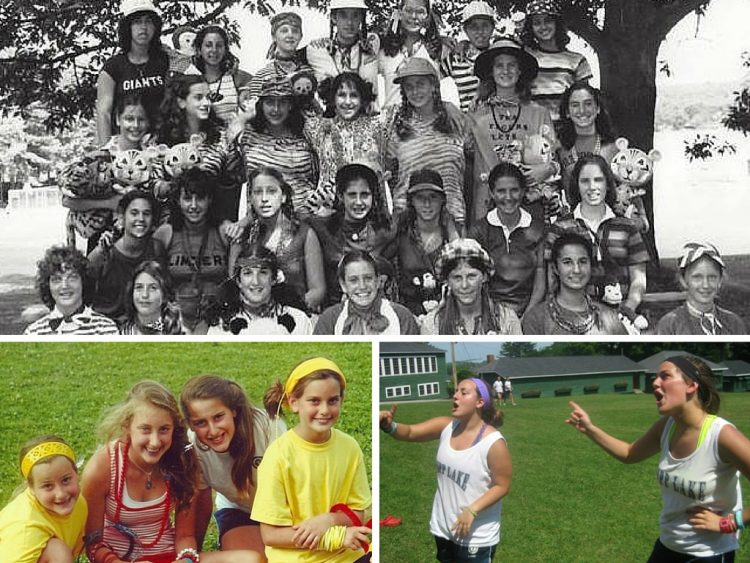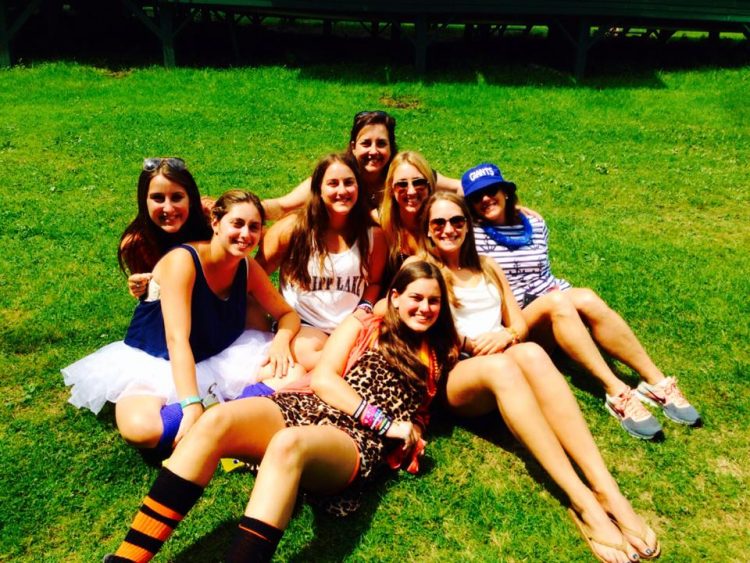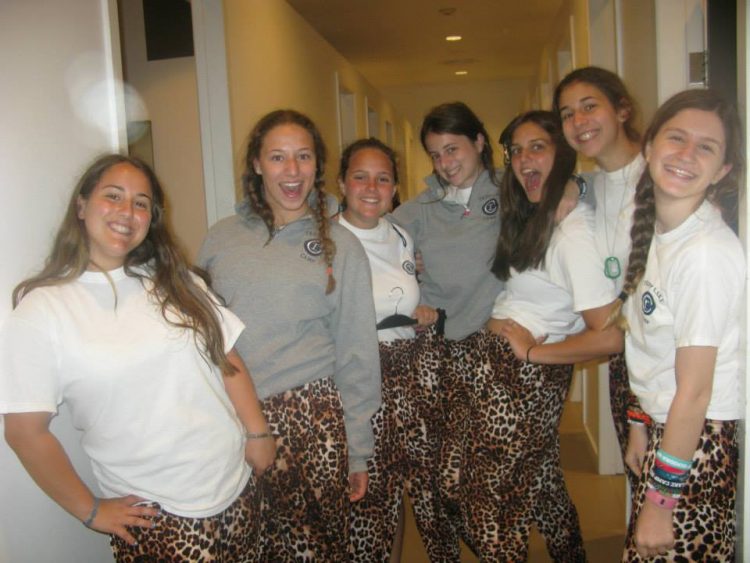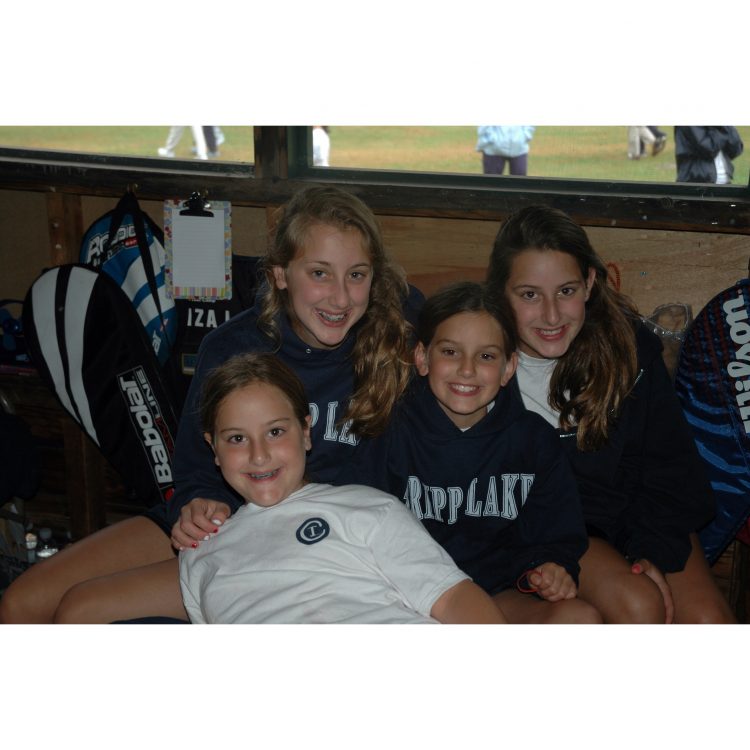By: Laura Conn, Campowerment Intern
“Where did you go to camp?” will always be one of my favorite conversation starters. If you know me or anyone in my family – you know that I am in a full-time, long-term, forever-and-always relationship with my childhood happy place, Tripp Lake Camp (TLC). Even if I didn’t want to be (which, to be clear — I do!!), TLC and I were destined to be in love from the summer I turned nine.
My “family tree” at TLC took root in 1935 (81 years ago), and I know this multi-generational tradition will continue to live on far beyond myself. “It’s something that I loved and was lucky enough to pass on to my children,” my mom declares proudly.

If you didn’t go to camp as a kid, I get that it could be challenging to imagine that a place so far off the grid could have such an impact on a whole family. Or how deeply embedded camp can be into the identity of each woman who spent her summers engaged in competition and learning how to peacefully coexist with her bunkmates. As hard as it is to understand, it’s harder to put into words, BUT I can try to break it down for you.
Scientifically speaking (sort of), the four phases of camp life and the intense love that comes with it:
PHASE 1: CAMP OBSESSION
“And If we ever leave a legacy, it’s that we loved each other well.” – The Indigo Girls
When parents anxiously ship their children off to camp for the first time, this is their goal. If all goes as planned, the camp obsession phase sets in instantly (give or take a few homesick days of adjustment).
You’re suddenly living in the middle of the woods with a group of girls you’ve never met before and your “summertime parents” (counselors) are twenty years old from faraway lands — with really cool accents — and you shower in flip flops and you choose what activities you want to do, and figure stuff out for yourself for the first time, and somehow, someway this new world quickly feels like home.

You watch the way the older girls embrace their friends on arrival day and link arms each time they walk from one activity to the next. You watch the passion and team spirit they have during inter-camp competitions, always dressing up in costumes and cheering until their voices fade. You see how much they care about tradition and the effort they put into making sure every Color War song is perfect. You see the way they jump into the freezing cold lake with silly swim caps on. You see them sitting under the trees and gazing at the sky, laughing so carefree with one another.
And then, after some years, you gather those experiences, build those relationships, and you are one of the cool older girls, generating laughter that catches the attention of the young campers, making memories that catch the attention of the future you, as you solidify your line-up of best friends you just know you’ll get to keep around for the rest of time.
Living proof: My younger (twin) sisters, with wrists covered in beads and bracelets from summers past. They epitomize the “10 months for 2” mentality, braving 10 non-camp months of the year to earn the 2 summer months spent at camp.
PHASE 2: POST CAMPRESSION
“So scared of getting older, I’m only good at being young.” – John Mayer
Nothing more depressing than the looming and unavoidable “Post Campression,” (post-camp depression) that comes when you “age-out” of camper days. It’s a reality that feels so far in the distance until it steps in, squashing summer dreams with a lead foot.
Non-campers: this one translates well to adulthood in general. Liken this to college graduation, the end of a really fantastic vacation, or the culmination of anything you’ve clung onto with your heart’s steadfast grip? This phase = the blues that immediately follow those experiences.
Living proof: My middle sister, who pines the camp website looking at pictures each day, planning her visit to camp and wondering how she can possibly move forward without a summer spent in the bunks. She knows that everybody thinks there’s light at the end of the post-camp tunnel, but she’s not quite ready to believe she’ll ever see it.
PHASE 3: CAMPER APPRECIATION
“Recognizing how she’s grown, knowing her heart will never leave her home”- Tripp Lake Camp Original

After reality has set in and you can push past your tears, you are able to look back at your camp experience and realize how much it shaped and changed you as an individual.
As I look back to my days as a camper, I think about how grateful I am for the invaluable experiences, the lessons learned, the everlasting friendships curated, and the bond formed within my family. Camp completely molded me into who I am today, and I let it. It taught me the great feeling of being comfortable with myself; it showed me where to find my confidence; how to be a leader; how to laugh with ease; and it gave me the sincere knowing of the great joy that true friendship can bring to my life. This didn’t happen easily or overnight, but after my 5th summer without camp, my appreciation only gets deeper.
Camp made me stronger, well-rounded, and more tolerant. So, as I grew up a little, I let phase two flourish into phase three, realizing that the feeling of aging out of camp eventually subsides as camp values will always stick with me. Taking a step outside of my camp experience has enabled me to really examine the impact of my camp life and to realize how much I had evolved since phase one; to understand the value and trust of your camp-friends; and to trust that we will all forever carry the lessons learned at summer camp.
Living proof: Me. Through loyalty, patience, care, joy, laughter, a sense of humor and goodness…I found my people. The girls I met in a bunk so many years ago formerly known just as camp friends, have evolved and changed titles to life friends.

PHASE 4: PAYING IT FORWARD
“We can’t return; we can only look, behind from where we came. And go round and round and round in the circle game.” – Joni Mitchell
Ah, the final and everlasting phase of regenerating camp love! While most people think they have to wait until their own kids go camp to pass on the magic, my mom and I knew that this wasn’t the case. There is a way to feel all the emotions without physically being at camp.
Living proof: My mom, a camp consultant, found a way to bring her lifelong passion to her career. She wholeheartedly understands the value of camp from not only her experience but ours, and she has been able to help other parents find the perfect summer camp for their own kids. She can (and does) talk about camp for hours, and knows that each camp has its own special character. My mom taught me that you don’t have to be back at camp to embrace its spirit and continue to help people find the passionthat burns around every camp’s fire.
I see myself moving in to this phase, as I transition into my last year of college and plan for “the real world,” taking a practice lap with the Campowerment Crew.
Once I surrendered to the idea that the camp counselor life is not in the cards for my career, I looked for a role that embodied the spirit but fit the grown-up bill. That’s how I landed here, spending my summer as a Campowerment intern. I was initially drawn to Campowerment because of its familiar camp culture, although very unfamiliar with what it means to be grown-up camper. But, I have come to realize that this is a true gift to adults, and proves camp is truly timeless. Campowerment helps adults to reground themselves and find the best version of themselves that may have inadvertently been buried over time.
And so, with my family and my newfound adult camp love and experience, I will perpetuate the cycle, and encourage you to bring this passion, energy and tradition into your family, too. Give yourself and your kids, friends and loved ones the gift of camp! I can attest to the beautiful legacy that gift can leave.